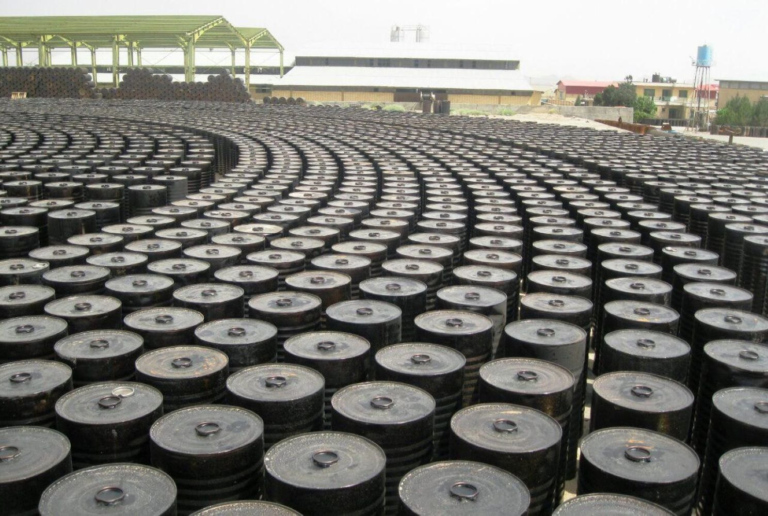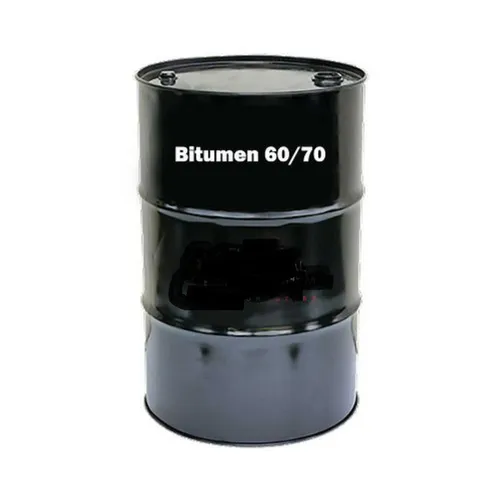Penetration Bitumen 60/70 – Definition and Application
Bitumen penetration grade is widely recognized as the standard grade for pavement applications worldwide. Many oil refineries around the globe have dedicated facilities for manufacturing different grades of bitumen penetration, such as 30/40, 40/50, 60/70, and bitumen 80/100.
Despite scientific evidence suggesting that the specifications of penetration grades of bitumen may not accurately guarantee its performance in road construction, the demand for these grades has remained consistent in recent years.
An analysis of bitumen consumption in European countries reveals that penetration grades of bitumen have dominated the market over the past decade. In 2015, for example, Europe utilized approximately 11,000 million tonnes of bitumen, out of which 9,000 million tonnes were penetration grades.
Penetration grades, also known as “air-refined bitumen,” are considered the simplest form of bitumen in terms of production, testing, and grading. Unlike other types of bitumen, penetration grades do not require any additional processing at the refinery.
Testing and grading of penetration bitumen are carried out without complexities. According to Eurobitume, this type of bitumen is graded based on the depth to which a standard needle penetrates the bitumen sample under specified test conditions.

Which Grade of Penetration Bitumen is Most Commonly Used?
Among the different grades of penetration bitumen, the bitumen 60/70 grade stands out as the most commonly used. This particular grade possesses unique properties that make it suitable for a wide range of applications. It can be effectively utilized in asphalt pavements across various regions worldwide, thanks to its versatility in temperature range (-22 to +76 degrees).
Moreover, the 60/70 grade of bitumen plays a pivotal role in determining the global price of bitumen. Prominent pricing benchmarks such as Argus Media and ICIS heavily rely on the rate of bitumen 60/70. As a result, suppliers and traders in the bitumen market closely monitor the price fluctuations of this grade to ensure a successful presence in the industry.

Applications of Penetration Bitumen 60/70
The bitumen penetration grade 60/70 finds extensive applications across various industries. Some of the key applications of bitumen penetration 60/70 include:
- Road Construction: This grade of bitumen is commonly used in road construction projects. It provides excellent binding properties, durability, and resistance to heavy traffic loads, making it ideal for asphalt pavement construction.
- Asphalt Mixtures: Bitumen penetration 60/70 is widely used as a binder in the production of asphalt mixtures. It helps in creating a strong and flexible asphalt layer that can withstand different weather conditions and traffic loads.
- Waterproofing: Due to its excellent waterproofing characteristics, bitumen penetration 60/70 is utilized in the construction industry for waterproofing applications. It is commonly used in the manufacturing of roofing materials, damp-proofing, and sealing of concrete structures.
- Industrial Coatings: This grade of bitumen is also used in industrial coatings and paints. It provides protection against corrosion and acts as a barrier against moisture and chemicals.
- Adhesives: Bitumen penetration 60/70 is employed in the production of various adhesives, such as tile adhesives and carpet adhesives, due to its excellent adhesive properties.
These are just a few examples of the wide range of applications for bitumen penetration 60/70, highlighting its versatility and importance in different industries.

properties of penetration grade 60/70 bitumen
Several factors can influence the properties of penetration grade 60/70 bitumen. These factors include:
- Temperature: Temperature has a significant impact on the properties of bitumen. As the temperature increases, the bitumen becomes softer and more viscous, while at lower temperatures, it becomes harder and less fluid. The temperature at which the bitumen is used or stored can affect its consistency, workability, and performance.
- Source of Crude Oil: The source of the crude oil used in the production of bitumen can influence its composition and properties. Different sources of crude oil have varying levels of impurities, which can affect the quality and characteristics of the resulting bitumen.
- Blending and Additives: Bitumen can be modified by blending it with other materials or incorporating additives. This process can alter the physical and chemical properties of the bitumen, enhancing its performance in specific applications. The type and amount of additives used can vary, resulting in different properties for the final bitumen product.
- Aging and Oxidation: Over time, bitumen undergoes aging and oxidation processes, which can change its properties. Exposure to air, sunlight, and other environmental factors can cause the bitumen to become stiffer and more brittle, affecting its overall performance and durability.
- Manufacturing Process: The manufacturing process used to produce penetration grade 60/70 bitumen can impact its properties. Factors such as temperature, pressure, and the duration of the refining process can influence the consistency, viscosity, and other characteristics of the bitumen.
It is essential to consider these factors when working with or specifying penetration grade 60/70 bitumen to ensure its suitability for specific applications and to achieve the desired performance outcomes.
Choose to Collaborate with ATDM
When it comes to forging partnerships in the bitumen and petrochemical industry, ATDM emerges as a clear frontrunner. The decision to work with ATDM is a strategic choice rooted in a multitude of compelling reasons. From its unwavering commitment to quality to its innovative prowess, there are several aspects that make ATDM a preferred collaborator.

 ۰۹۱۲۲۲۶۵۶۵۹
۰۹۱۲۲۲۶۵۶۵۹